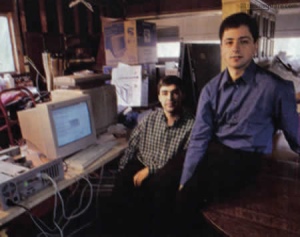Democratic Corporatism

Is there such a thing as Too Much Democracy? That’s what The Economist determined about California ten years ago, pointing out that when every voice counts, nothing gets done. We can’t build housing because that would infringe on the rights of owls. We can’t clear fire hazards because that infringes on the rights of oak trees. We can’t build high speed rail because that infringes on the rights of eels. I’m beginning to see the appeal of autocracy.
In the 10 year period California began discussing the 190km California highspeed rail, which will run at speeds of 200kph, to the time it took to break ground, China built 25,000km of highspeed rail which travels at up to speeds of 300kph+. Also, lobbying is illegal in China. pic.twitter.com/gvTjftZh9x
— Daniel Dumbrill (@DanielDumbrill) September 29, 2019
Direct democracy tends to be the pet paradigm of left-coast utopians who have no idea how government works. Most corporations are authoritarian, but Google, Facebook, and many other tech companies have a culture of radical transparency where every employee has an opportunity to voice concerns. That’s manageable when a company is small and homogenous, not so much when it’s big and global. Facebook execs can’t meet with Taiwan’s president without offending thousands of Chinese employees, and Google can’t sign a defense contract without half the office walking out in protest.
Compare to Apple, a company that dispenses with democratic ideals and embraces tyranny. Remember that time Apple fired an employee after his daughter inadvertently uploaded a video clip of an iPhone X? That’s the type of company that has no qualms entering China.
As Google and Facebook have realized, it’s time to scale back participation. The best way to reduce input from the masses is to keep them in the dark. My former classmate works for Apple designing LCD screens, but he’s not allowed to know what device the screens attach to. The LCDs might display the countdown timer for nuclear warheads for all he knows. Radical secrecy keeps people from questioning corporate strategy.
The US government has mastered this well. After the Vietnam War, the Trilateral Commission determined that we suffered an excess of democracy. People knew too much, and protesters tanked our war efforts. We can’t stop the masses from protesting, but we can stop them from knowing what to protest. That’s why the press is no longer allowed to publish photos of war casualties, or even report on what countries we invade. That’s why we had to prosecute Chelsea Manning.
Democracy thrives in darkness.



